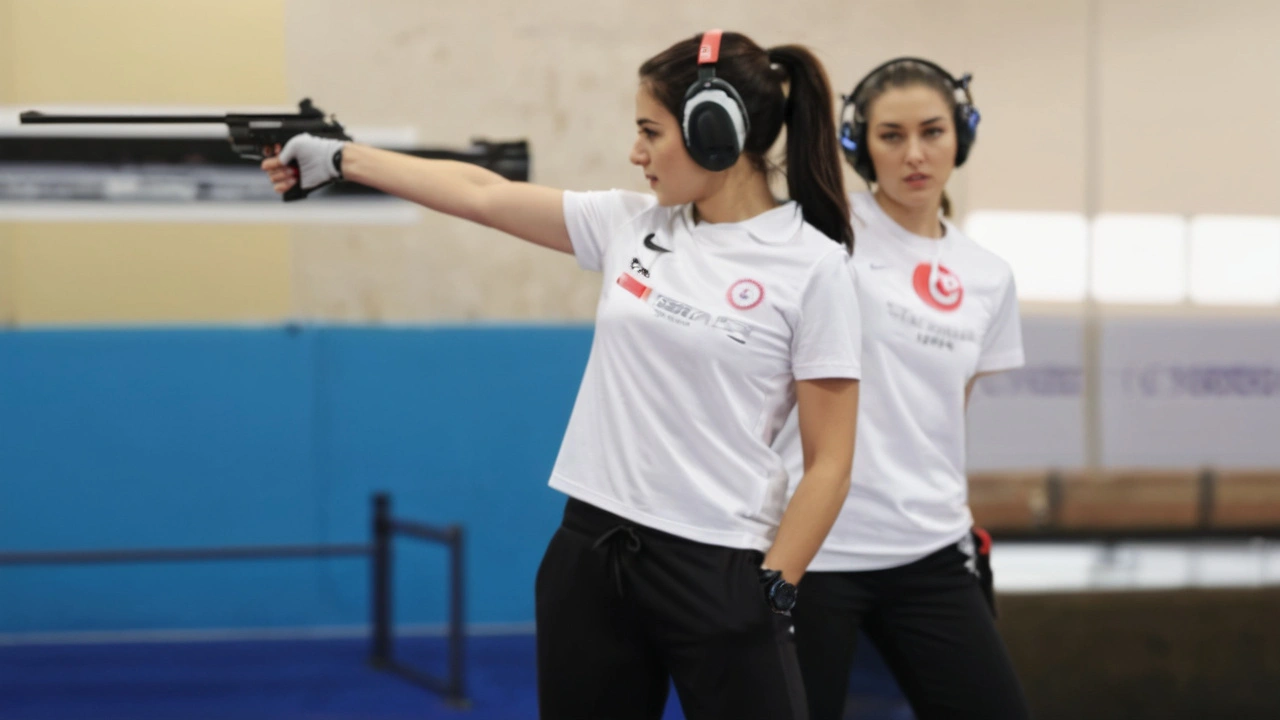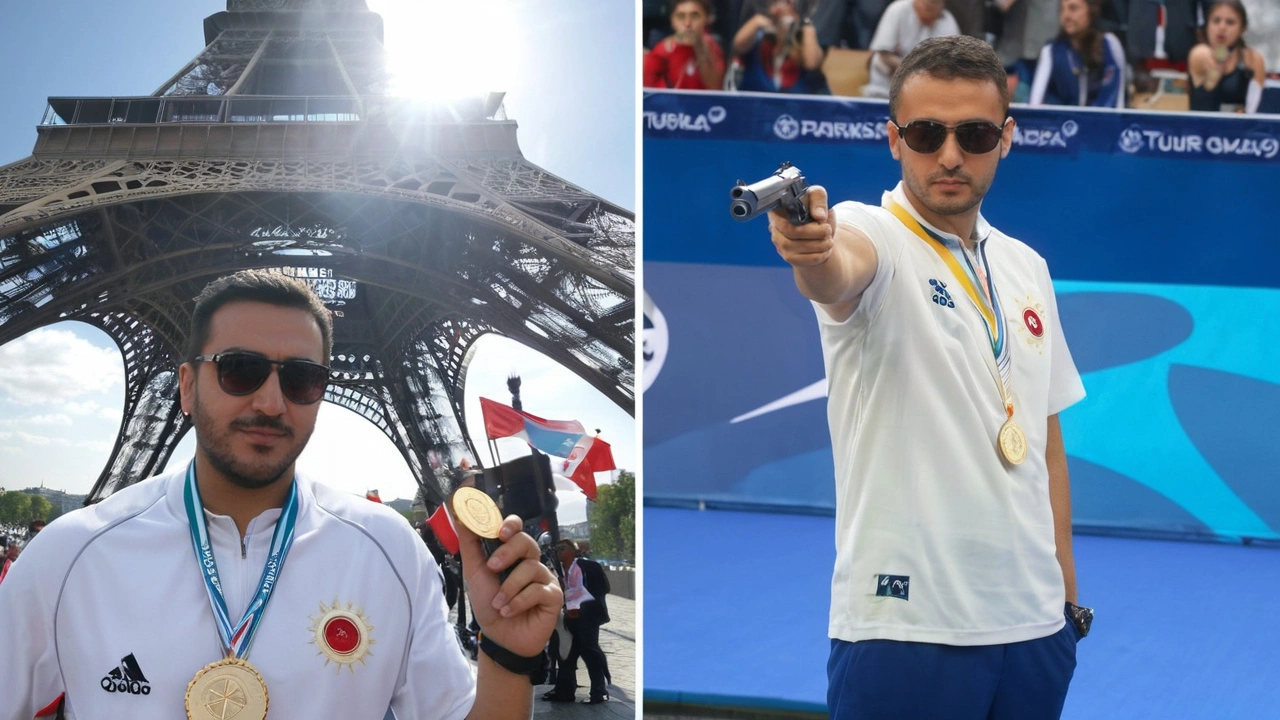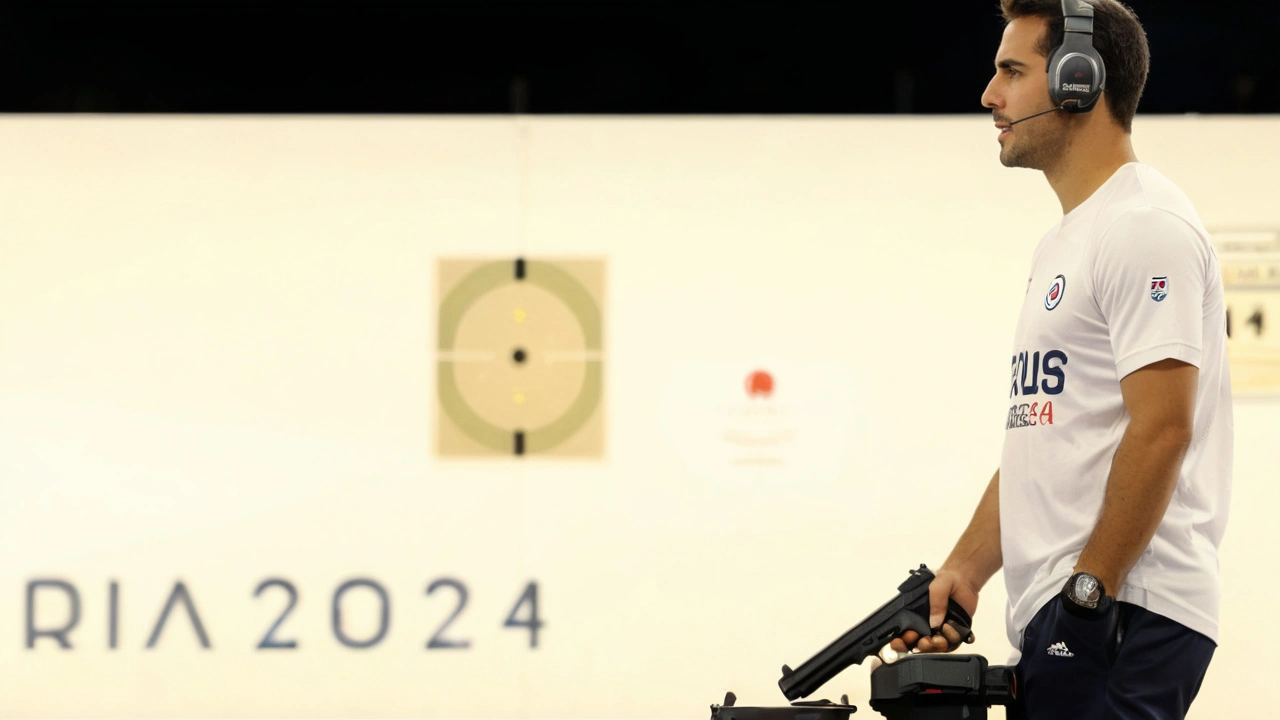Introduction
The world of Olympic shooting might seem miles away from the daily grind of police work, but there are crucial lessons that law enforcement could draw from it. Yusuf Dikec, an Olympian shooter who has stunned the world with his precise aim and unwavering focus, offers a case study in how mental fortitude, preparation, and meticulous training can translate into success. His athletic achievements underscore critical techniques that could benefit police officers who often find themselves making split-second, life-altering decisions under extreme pressure.
The Journey of Yusuf Dikec
Yusuf Dikec's rise to fame in the world of competitive shooting is a testament to the power of mental strength and resilience. Originating from a humble background, Dikec has shown that with the right mindset and consistent effort, extraordinary success is possible. His journey serves as an illustration of how focus, determination, and relentless practice can bring excellence. While on the surface, precision shooting and law enforcement may seem like different worlds, the underlying skills required in both fields have more in common than one might think.

The Significance of Mental Preparation
Mental preparation is key in both shooting sports and police work. Dikec's ability to maintain his composure under the scrutinizing eyes of spectators and judges during the Olympics is nothing short of remarkable. This same calm and focused mindset is invaluable for police officers who often find themselves in high-stress situations, requiring quick and precise decisions. Techniques used by athletes like Dikec, such as visualization, controlled breathing, and mental rehearsal, could be integrated into police training to enhance their mental resilience and performance.
Many police departments focus heavily on physical readiness, but the mental aspect deserves equal attention. Building a robust mental framework can help officers remain calm and collected when faced with potential threats, thus enhancing their decision-making capabilities. Dikec's methods include rigorous mental conditioning, which helps him stay focused and perform under intense scrutiny, a trait equally beneficial for officers on the line of duty.
Focus: The Common Ground
Focus is a skill that can make or break performance in both fields. Whether aiming for a target or navigating a tense situation, undivided attention is critical. Dikec's training regimen includes drills that hone his ability to maintain concentration, a practice that can be mirrored in police training programs. Techniques such as mindfulness and situational awareness exercises can be incorporated to help officers improve their focus, enabling them to better assess and respond to unfolding scenarios.
Consistent Training and Skill Refinement
Dikec's success emphasizes the importance of consistent, disciplined training. The precision required in competitive shooting comes from hours of dedicated practice, honing skills until they become second nature. Law enforcement training can benefit from a similar approach. Regular drills, scenario-based training, and continuous skill refinement are essential for officers to perform effectively under pressure.
Police departments can adopt training routines that mirror the intensity and regularity of those used by Olympians. This could include high-stress simulations that challenge both mental and physical capabilities, ensuring that officers are better prepared for real-life challenges. Just as athletes repeat their techniques to perfection, officers too must engage in repetitive, realistic training to ingrain necessary responses.
The Role of Performance Psychology
Performance psychology plays a critical role in both sports and law enforcement. Athletes like Dikec often work closely with sports psychologists to enhance their mental game. They use specific strategies to manage stress, maintain focus, and boost confidence. Similarly, police officers could greatly benefit from incorporating performance psychology into their training regimes.
These strategies might include stress management techniques, resilience training, and mental conditioning programs. By doing so, officers can develop a mental toolkit that helps them manage the psychological demands of their job, reducing the likelihood of errors during high-stress encounters. This approach underscores the need for law enforcement to prioritize psychological training alongside physical preparedness.

Implementing Dikec's Strategies in Police Training
One practical application of Dikec's training methodologies is the use of controlled breathing techniques. High-pressure situations often induce a fight-or-flight response, which can impair decision-making. Training officers in controlled breathing can help them manage their physiological responses, keeping them calmer and more focused.
Additionally, visualization exercises can be powerful tools for police officers. By mentally rehearsing different scenarios, officers can prepare themselves for a variety of situations, improving their response times and decision-making accuracy. This type of mental rehearsal is a staple in Dikec's preparation, enabling him to stay ahead of his competition by envisioning success and meticulously planning his actions.
The Importance of Realistic Simulations
Realistic simulations are another key component of effective training. Olympians like Dikec practice under conditions that closely mimic actual competition settings. Law enforcement agencies can adopt a similar approach by creating training environments that closely replicate real-world conditions. This can include mock drills, live-fire exercises, and scenario-based training that challenges officers to think on their feet and make quick, informed decisions.
Conclusion
In conclusion, the lessons that Yusuf Dikec's Olympic success can teach police officers are profound. By adopting training methods centered around mental preparation, focus, and consistent practice, law enforcement agencies can enhance their officers' performance in high-pressure situations. Incorporating elements of performance psychology and realistic simulations can further prepare officers for the demands of their duties.
It is time for police departments to look beyond traditional training methods and embrace a more holistic approach that includes both mental and physical preparation. By doing so, they can foster a force that is not only physically capable but also mentally resilient, ultimately leading to better outcomes in the field and enhanced public safety.

17 Responses
Yusuf Dikec's mental discipline is a prime example of how focus can be trained like any other skill.
Police academies could integrate short visualization modules into daily drills.
By rehearsing high‑stress encounters mentally, officers build neural pathways that support calm decision‑making.
This approach complements physical training without adding excessive workload.
Overall, the synergy between mental and physical prep can raise operational standards.
One must acknowledge that the epistemological underpinnings of Dikec's regimen, when transposed onto law enforcement paradigms, constitute a paradigmatic shift in tactical cognition; the sheer magnitude of psychophysiological conditioning he employs is an affront to the antiquated, myopic training doctrines that pervade many precincts.
In the grand tapestry of occupational performance optimization, the integration of controlled respiration techniques and systematic scenario visualization is not merely an ancillary adjunct but a requisite cornerstone of any modernized force.
The logistical ramifications are nontrivial, demanding a reallocation of budgetary resources towards cognitive conditioning specialists, yet the cost‑benefit calculus undeniably favors reduced liability and enhanced public trust.
Moreover, the ontological significance of embedding performance psychology within departmental SOPs cannot be overstated, as it engenders a culture of resilience that permeates every operational tier.
Consequently, any resistance to adopting these methodologies is tantamount to institutional complacency in the face of incontrovertible empirical evidence.
Dikec shows that mental drills are as vital as gun drills. Officers can start with a 5‑minute breathing exercise before each shift.
Imagine an officer stepping into a volatile scene with the calm of an Olympic shooter-it's a powerful image.
The breath work and visualization Dikec uses can turn panic into precision.
Integrating these practices could transform not just outcomes but the very ethos of policing.
We owe it to our communities to explore every avenue that fosters safety and composure.
The proposed incorporation of performance psychology aligns with contemporary criminological theory, which emphasizes cognitive readiness alongside tactical proficiency.
Structured mental conditioning modules could be piloted within select precincts to assess efficacy.
Such initiatives would benefit from longitudinal studies to quantify impact on decision‑making accuracy.
Indeed, the symbiosis between elite sport and law enforcement is not a fanciful notion but a veritable nexus of experiential learning.
By adopting Dikec's meticulous rehearsal techniques, officers can cultivate an inner equilibrium that belies the chaos around them.
This refinement of the psyche is as essential as any firearm proficiency.
It is utterly surprising that agencies continue to eschew scientifically validated mental training in favor of antiquated, muscle‑memory drills alone.
One would think that neglecting the cognitive domain is a deliberate strategy to perpetuate avoidable errors.
Adopting Dikec's disciplined approach would be a modest concession to progress.
Nevertheless, the inertia of bureaucracy remains an impressive obstacle.
Perhaps a paradigm shift is finally on the horizon.
yeah, sure, they’ll just ignore it like they ignore everything that isn’t a new gun model-big surprise.
maybe they’re scared that real focus will expose the hidden agendas in the system.
who knows, but Dikec’s stuff could be the secret weapon they’re too lazy to try.
Implementing short, guided breathing sessions could be a low‑cost, high‑impact addition to daily briefings.
Officers often report feeling more centered after just a few minutes of controlled respiration.
It’s a simple win for mental resilience.
The mind, like a rifle, must be calibrated before the shot; neglecting this leads to misfires in both sport and duty.
Dikec teaches us that precision begins within.
Wow, this is such an eye‑opener! 😮
First off, the idea that police can borrow mental training techniques from an Olympic shooter is absolutely brilliant!
Visualization, controlled breathing, and scenario rehearsal are not just buzzwords-they’re proven tools that can shave precious seconds off reaction time.
Imagine an officer entering a high‑risk call with the same calm focus that Dikec brings to the shooting range; the potential for de‑escalation skyrockets!
Research in performance psychology shows that even a 5‑minute mental rehearsal can prime the brain for optimal decision‑making.
When you combine that with realistic, high‑stress simulations, you create a feedback loop that reinforces both confidence and competence.
Departments that have already piloted such programs report lower incident rates and higher officer satisfaction-statistics don’t lie!
It’s also worth noting that these practices are cost‑effective; you don’t need expensive equipment, just time and commitment.
Incorporating short breathing drills into daily roll‑calls could become a new norm, much like checking equipment.
And let’s real, patrol officers are already juggling so many responsibilities-adding a quick mental reset could be a game‑changer.👍
Beyond the tactical benefits, fostering mental resilience helps mitigate burnout, which is a silent crisis in law enforcement.
When officers feel mentally equipped, they’re less likely to experience the chronic stress that leads to PTSD.
So, this isn’t just about shooting accuracy; it’s about overall well‑being and community trust.
Communities will notice when officers approach situations with steadiness rather than panic, building a bridge of trust.
All in all, let’s champion these interdisciplinary lessons and push for holistic training reforms! 🚀
Ah, because what every precinct needs is a pop‑culture feel‑good lecture, right?
Maybe we should also schedule yoga retreats between raids.
But seriously, the core idea of mental prep is solid-even if the fanfare feels a bit over‑the‑top.
Let’s keep the science and ditch the emojis.
Stop romanticizing shooting sports and focus on real police work.
Cool take on borrowing sports mindset, feels like a fresh breeze for training.
Adding a few mind‑games could spice up the routine.
Looking forward to seeing it in action.
Yo, love the idea of mixing in some mental drills.
It’s all about keeping the crew sharp on every level.
Let’s give it a shot and see how it rolls.
Absolutely, integrating cognitive conditioning is the next-gen synergy that will elevate tactical efficacy across the board.
When officers internalize these mental frameworks, the operational tempo accelerates without sacrificing precision.
It’s a win‑win for safety metrics and community rapport.
Let’s champion this paradigm shift together.
The proposal sounds idealistic but ignores budgetary constraints.
Realistically, many departments will never adopt such “nice‑to‑have” programs.